#uniculture
Explore tagged Tumblr posts
Text
To be fair I’m Arab on top of being American, and right now that’s just an awkward position to be in considering everything that’s going on. But even people who have no ethnic roots and only have American culture to fall back on don’t have much to work with. Like literally what do we have??? McDonalds and guns????
Being from the US is so funny bc I can tell literally no one is proud of it. Like we are all just ubiquitously embarrassed all the time
#no like SERIOUSLY .#I’m so glad I can double dip into my Iraqi culture whenever I wanna feel something#I’m pretty westernized so I’m not the poster child for arab culture or anything but at least I have it#i feel bad for unicultural americans bc y’all have nothing. I’m sorry
427 notes
·
View notes
Text
Oh god, Im five minutes into the Shanghai Special and I definitely remember reading salt posts about this at some point, but I completely forgot that the inciting incident of Marinette wanting to go there was to follow Adrien and that she basically used going to visit her uncle as the excuse which is bad, especially considering Adrien is the whitest boy alive and the show does this weird thing where he knows chinese culture better than Marinette and knows how to speak the language better than Marinette and his family has more personal connections to the chinese miracle box than Marinette's, like, it looks really bad
But the reason Im making this post is actually because I wanted to talk a little about the way they handle Marinette being part of a, idk if this is the best way to phrase this, non-dominant culture. Im phrasing it like that because Im white and the child of two immigrants from the same country, so Im not getting into the additional nuances of being biracial or even of belonging to two different cultures here
First off, I think its fine that Marinette isnt super in-touch with the chinese side of things because she doesnt like, live there and her parents dont seem to be encouraging her to get in touch with it. Im in pretty much the same situation and I actually find it pretty relatable that she doesnt interact too much with her culture outside of like, food mostly. It is a shame because we couldve had something interesting with her initially not being interested in learning more about chinese culture and only researching it and ancient china to find out more about the Miraculous, but then a genuine desire to reconnect with that part of herself starts to grow from that, but I dont think its the biggest deal in the world
The thing that bothers me the most is that they not only basically had Adrien 'be better' at her own culture than Marinette, she doesnt react to it all beyond maybe being like "oh hes so talented" and its like. Im having a lot of trouble putting this into words, but I'll try anyway
When youre the child of immigrants especially and youre not very in-touch with your/your parents' culture, dont really speak the language, dont participate in any traditions and then you meet other immigrant-kids from the same country/culture and they do speak the language and are overall way more in-touch with it than you are, theres this incredible sense of embarassment that I could never explain to people who are, idk, unicultural ? is that a word I should use here? And like, with other people from a similar background theres atleast this sense of solidarity yknow, but with people who are not from there and who are maybe just good at the language and know the culture bc culture lessions are a pretty big part of most language learning lessions.... its a bit different I would imagine. I say 'I would imagine' bc my parents are from a russian-speaking country and we live in germany and, while a lot of schools here will offer some kind of voluntary russian lessions (atleast in my area) most of those are attended by immigrant-kids trying to learn or relearn their language and Ive never met someone who was born here without a russian or post-soviet background who knew russian beyond a few words and who was well versed in russian culture and the cultures of ex-soviet countriws.
However, if I did meet a person like that, I would probably be pissed. Thats obviously not the case for all immigrants and I think the reason why the thought of people not from 'my' culture being "better" at it than I am honestly relates to some deep personal baggage I have because I started crying when I wrote that previous section. And like, its good to learn other languages and to learn about other cultures, please dont let this post discourage you in any way, this is just because of some personal stuff that I dont want to share here.
My point here is, there are intense and complex emotions attached to your family's culture, even if you dont participate in it yourself for whatever reasons you may have. I dont like that its just being swept under the rug for Marinette because the writers would rather have her drool over an intensely bland guy than even begin to address how awful it feels to not be able to communicate with or understand a memeber of your own family due to cultural differences and because you just didnt keep in touch.
Thats it, if you're biracial or you were raised in a multi-cultured home and you have thoughts about this, please share them because I'd love to hear them!
12 notes
·
View notes
Text
Entry #4
Prompt: Reflect on how your level of comfort with your cultural self may be dependent on whether you are a member of a dominant/minority social group, whether you are a first/second generation immigrant (and the reasons for your immigration), or whether you live in a unicultural or multicultural setting.
As mentioned in my first entry, my family and most of my friends from home come from Scottish ancestry. I think I am definitely part of a dominant social group, as many of the people in my home community and even my friends from elsewhere come from similar backgrounds. I am also White and come from a WEIRD society. I think it is safe to say that I also live in mostly a unicultural setting.
I think, with all of this information considered, it is very easy to feel quite comfortable with my cultural self. This is shown in many ways throughout my life. There is a strong sense of cultural familiarity in my life, I don't often feel like a cultural outsider (except for when my mainland friends make fun of my Cape Breton accent, which is usually pretty funny), and I rarely feel the need to explain my cultural background in any setting I am in. As mentioned, I believe these privileges are a result of being a part of a more dominant culture in both visible and invisible ways.
0 notes
Text
Comfort in cultures
I have grown up in a very unicultural setting, which affects my experience with other cultures that aren't my own. I am comfortable in my culture because I am part of the dominant cultural group. Thinking about this really helps me to reflect on ways that I can broaden my cultural learning to ensure that people feel comfortable in this culture. In smaller/different contexts of culture in my life, I would also consider myself to be among the minority of some social groups. I think that it depends which cultures you are looking at in someone's life. You will probably always feel more comfortable in one culture rather than another in your life, and that is okay. I think that it's important to focus your attention on the cultures in your life that make you feel the best.
0 notes
Photo
Unisex, unisize, uniculture... we really need to get back to wearing giant scarves and rolls of raw uncut fabric. Like, as a global thing. It works in all seasons and in all climas.
Btw you can use squares and rolls of fabric as socks too. Including high shin pieces for warmth like


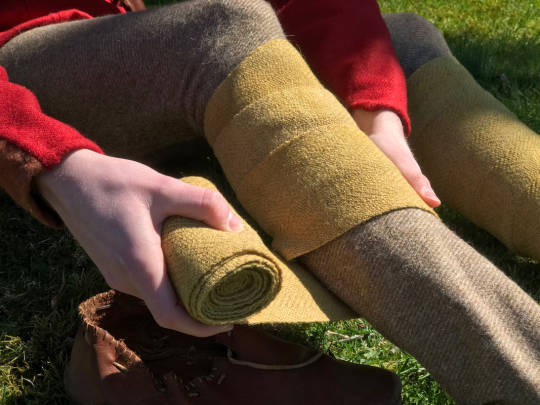
Just saying
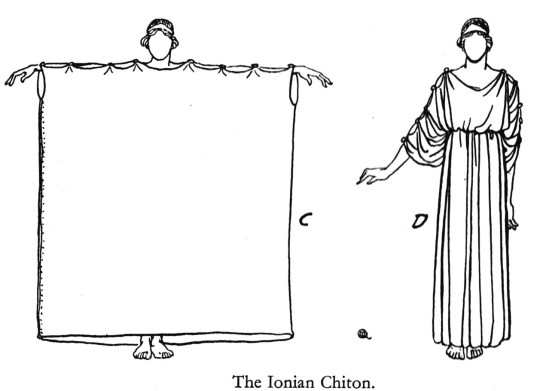
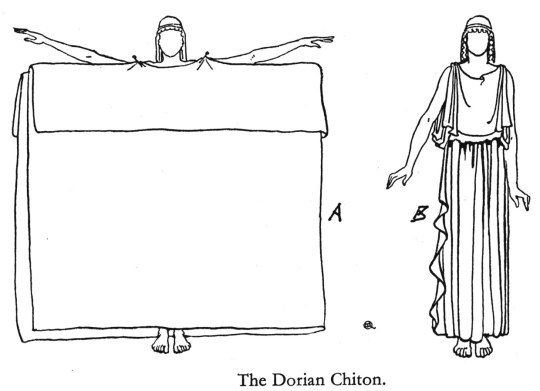
Costume. Chitons.
760K notes
·
View notes
Text
That Was Fast
Log for 11/12/2024
Today I worked from 11AM to 4PM. I started by writing more of my article and later moved onto more research. I managed to get a lot done with my article, and I can see myself finishing it by the end of the week.
My introduction remains the same, but the body of my essay has gone through major changes. I had originally thought my initial experience learning about archives during my undergrad would play a larger role. Additionally, I figured I could throw in a segment about my grandfather's oral history interview. However, I found these bits unsubstantial to warrant their own in-depth analysis. Furthermore, said analysis would steer the article in too many directions.
My article now focuses on the "good and the bad" of archives. Why I think they're interesting, and why they could be better. I framed this argument around critical race theory. What people don't often realize is that the act of revolutionizing archives (making them for diverse essentially) is exactly what CRT is about. It's about introducing marginalized experiences and giving them an equal platform with which to speak. For this essay, I used this quote from Gary Nash as he spoke at the Lawrence E. Brewster Lecture:
In the context of arguments today over multicultural education, it is important to realize how unicultural the profession was until after World War II. Before then, history writing was the province of white gentlemen. Though certainly varied in their historical interests, political proclivities, and methodological approaches, historians partook deeply of the scientific racism of their day, had little interest in women's role in history, and were largely indifferent to labor history. (Nash 1996)
Additionally, I referenced the recent news of the National Archives censoring US history for the sake of the political right. These two sentiments when placed side by side explain that this has been an issue, and continues to be an issue. My article then explores the ways in which archivists are changing this narrative. At this point, I will bring in Invisible Histories and their role in correcting the harmful effects of poor archivism.
After figuring out this direction, I found a good stopping point and started researching. My goal was to find more historical societies to search through, although I doubt the ones I found have Queer content we could use. I did get a response back from the Birmingham Museum of Art, however, and I plan to response tomorrow during work hours.
This log was especially long, as you can see I'm excited about this paper. Until next week!!
0 notes
Photo
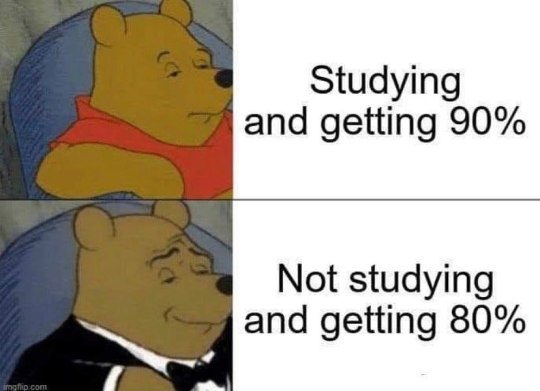
{ #historymemes } || source: uni.memess
#economics#economicsmemes#universitymemes#unimemes#collegememes#architecturememes#lecturememes#econmemes#econmeme#philosophymemes#alevels#geographymemes#chemistrymemes#historymemes#politicalmemes#financememes#physicsmemes#uniculture#pharmacymemes#studentmemess#favourites#updates#IG: join.a.groupchat
15 notes
·
View notes
Photo
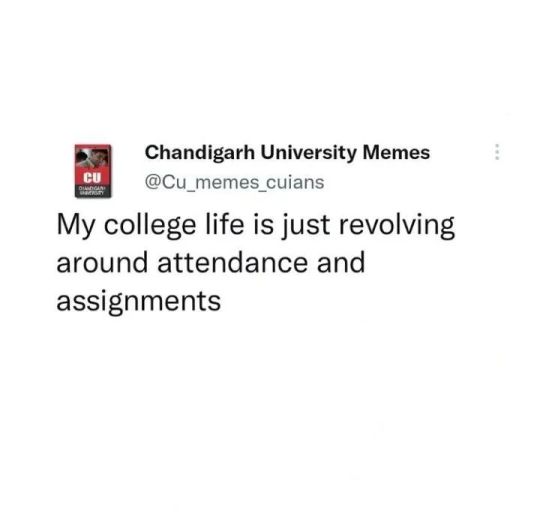
Got assignment due? DM for professional. Full class help available #help#economics#economicsmemes #universitymemes #unimemes #collegememes #lecturememes #econmemes #econmeme#philosophymemes #alevels #geographymemes #chemistrymemes #historymemes #politicalmemes #financememes #physicsmemes #uniculture #economicclass#studyeconomics #pharmacymemes #economicstudent#studyinmadrid (at Kaplan University Online) https://www.instagram.com/p/CjgomHNjMBa/?igshid=NGJjMDIxMWI=
#help#economics#economicsmemes#universitymemes#unimemes#collegememes#lecturememes#econmemes#econmeme#philosophymemes#alevels#geographymemes#chemistrymemes#historymemes#politicalmemes#financememes#physicsmemes#uniculture#economicclass#studyeconomics#pharmacymemes#economicstudent#studyinmadrid
1 note
·
View note
Photo

I love fashion designer's that learn to adapt and blend with cultures with modesty, one such designer is the renowned Czech Fashion Designer 'Mirka Talavaskova'. . . Her brand @talabayadesign is about respect to diversity across times and cultures. Talabaya is a story about a woman, her creativity and desire to freely express her personality. . . This minimalistic and monochrimatic shirt dress 'Emma' comes with a powder pink and black dress with a cape/veil. The perfectly tailored dress has a very creative twist to it, you could use the cape to tie a knot, leave as a wrap or use as a scarf, so many styling options with this dress all we have to have is a bit of creativity. . . The shirt dress gives a very stylish yet chic look making it great for formal events or even style it for a casual look with a sporty footwear. This collection is so versatile it fits women from the West and East a dress so diverse it supports #uniculture . . The fabric is made of light and airy georgette, making it suitable for warm weathers and can be easily maintained. . . Check the spring/summer 2020 collection at www.talabaya.com. . . You can also find Talabaya fashion brand at BEYOU boutique here in Dubai @beyouboutique or at @harveynicholsriyadh in Riyadh. . . 📸 @shafnisara . . #ad #UNIculture #fashiondesigner #modestfashiondesigner #dubaifashionblogger #fashionblogger #multiculture #ramadanfashion #talabayaramadancollection #hijabstyle #styleblogger #talabayass2020 #talabayadesign #springwithtalabaya #czechfashiondesigner #czechdesigner #modestfashionblogger #modestfashion #bodypositivity #browngirlblogger #diversefashion (at Dubai, United Arab Emirates) https://www.instagram.com/p/CAU9KVODkhj/?igshid=1ojkllphmjici
#uniculture#ad#fashiondesigner#modestfashiondesigner#dubaifashionblogger#fashionblogger#multiculture#ramadanfashion#talabayaramadancollection#hijabstyle#styleblogger#talabayass2020#talabayadesign#springwithtalabaya#czechfashiondesigner#czechdesigner#modestfashionblogger#modestfashion#bodypositivity#browngirlblogger#diversefashion
0 notes
Text
Seriously though, I do love the American people. It doesn't seem like it, living in the Urban Western world but so so much of the world unicultural, and that's beautiful in its own right, but I am forever appreciative to get to live in this wild, fantastic, jumbled mess of amazing people. I know we fight online for 99% of the year, and I know many folks choose to see only the nationalism of the holiday, but coming out into the community and seeing a group of people come together to celebrate being here - and so many of them only recently gaining citizenship- its heartwarming, even if I do have to extract dogs from inconvenient hiding places
Congrats America, we are once again free of the Brits
1 note
·
View note
Text
I hate capitalism for making valentine's day a unicultural holiday. Instacart not delivering. I know all of you motherfuckers arent catholic
11 notes
·
View notes
Text
SOS Elms Coalition Speaks out
SOS Elms Coalition came to fruition with a passion to save Elm trees across the province of Saskatchewan during the rampage of Dutch Elm Disease DED in North America. Keeping abreast of the progression of the disease and forestry practices, SOS Elms was on top of the situation when the provincial Dutch Elm Disease program was cut from the budget in 2010. In lieu of the program, individual towns, municipalities and cities are taking responsibility upon themselves of educating the public in their area about DED and best conservation practices.
Richard St. Barbe Baker Afforestation Area, West Swale Saskatoon, Saskatchewan, Canada
Winter in Richard St. Barbe Baker Afforestaton Area, Saskatoon, SK, CA
Richard St. Barbe Baker Afforestation Area, Saskatoon, SK, CA Winter
Richard St. Barbe Baker Afforestation Area Spring time
Richard St. Barbe Baker Afforestation Area, Saskatoon, SK, CA
Richard St. Barbe Baker Afforestation Area in the fog
Communities established a regional urban forestry community group or NGO, and in Saskatoon, it is the SOS Elms Coalition providing that support for the city of Saskatoon. These local foresters have had a keen eye out for Dutch Elm Disease, and work together with the City of Saskatoon Urban Forestry Program, and so were able to implement the Dutch Elm Disease DED response plan, so the single infected tree in Saskatoon with DED would not promote a city wide infestation.
“Urban forests in Canada have been dominated by three themes: superficial support by the provincial and federal governments, individuals’ commitment to developing urban forests of excellence, and awareness and action fueled by natural disaster….Cities like Saskatoon, Regina and Moose Jaw saw urban forests created largely with elm due to the limited number of species choice. In the 2000’s greater efforts were expended to diversify these forests. Regina’s Wascana Centre has had a lead role in maintaining tree cover in the prairie city as has SOS Elms in Saskatoon.”~Rosen
“The arrival of Dutch elm disease in the early 1960’s virtually wiped out the American elm (Ulmus americana L.) the street tree of choice in Canada’s cities. From this an urban forestry movement was born including the creation of a number of organizations – from community groups such as SOS Elms”~Rosen-Kenney
SOS Elms Coalition, reached out to the public for unique and spectacular trees of Saskatoon, and published a full colour booklet of these sites. These large tree centenarians grace Saskatoon’s Urban Forest. As an example of some of the trees presented are a Ginkgo Biloba, Limber Pine, Prairie Silk Honey Locust, Black Walnut and Northern Pin Oak grow against all odds in the City of Saskatoon, rare and unique species, indeed.
Heather Cline, a local artist visited the sites of Saskatoon Trees, which were presented by SOS Elms in their tree tour booklet. Her inspiration, resulted in a placement of artwork entitled the Urban Forest
SOS Elms Coalition sets up conference displays, initiates programs for schools, and assists in community projects bringing to the Saskatoon community an awareness of environmental issues and the precautions to mitigate the spread of Dutch Elm Disease.
Members of the SOS Elms Coalition were at the Richard St. Barbe Baker Afforestation Area Clean UP in the summer of 2016. Robert White, of SOS Elms Coalition, was the official photographer at the clean up. As was the case in 1972, Manchurian Elm, and American Elm were afforested, along with hardy drought resistant tree species such as Colorado Blue Spruce, Balsam-poplar, Scotch Pine, Caragana. If Green Ash, Manitoba Maple or Willow were planted, there was not a large survival rate of these in the afforestation area. Native prairie Trembling Aspen Groves are mixed within the afforested woodlands. SOS Elms members recognizing the various locations of Elms in this urban regional park will truly ensure best conservaton practices.
SOS Elms placed the City Urban Forest ~ the Richard St. Barbe Baker Afforestation Area ~ in the December 2016 SOS Elms Coalition newsletter
Richard St. Barbe Baker Afforestation Area
The power of citizen action
by Robert White
“For 37 years, the 660 acre Richard St. Barbe Baker Afforestation Area (RSBBAA) in southwest Saskatoon (see map) was mostly neglected even though proclaimed by City Council in 1979 as an “urban regional park” and a “forest in perpetuity”. The park began in 1960 with a visionary idea of City planners” …
…to read more about the RSBBAA in the SOS Elms newsletter click here (pdf)
To learn more about the SOS Elms Coalition or to join this Saskatoon Urban Forestry Organisation, see their Webpage; SOS Elms Coalition Welcome.
The present is full of opportunity. Never before in the history of the planet has mankind been given the privileges and opportunities that are at his disposal today. A great light has been raised and is penetrating the darkness of the world, but alas, too many with dust blinded eyes have yet to catch the vision. Some of us have. That is our privilege and our responsibility.~Richard St. Barbe Baker.
For more information:
Richard St. Barbe Baker Afforestation Area is located in Saskatoon, Saskatchewan, Canada north of Cedar Villa Road, within city limits, in the furthest south west area of the city. Wikimapia Map: type in Richard St. Barbe Baker Afforestation Area Google Maps South West Off Leash area location pin at parking lot Web page: https://stbarbebaker.wordpress.com Where is the Richard St. Barbe Baker Afforestation Area? with map Facebook: StBarbeBaker Facebook group page : Users of the St Barbe Baker Afforestation Area Facebook: South West OLRA Contact the Meewasin Valley Authority in Saskatoon, Saskatchewan, Canada. The MVA has begun a Richard St. Barbe Baker Afforestation Area trust fund. If you wish to support the afforestation area with your donation, write a cheque to the “Meewasin Valley Authority Richard St. Barbe Baker Afforestation Area trust fund (MVA RSBBAA trust fund)”. Please and thank you! Twitter: StBarbeBaker
“When tree cover is destroyed it is a threat to both man and the creatures. The protection of world wildlife was in the vanguard of the conservation movement and it was very soon recognised that it was not possible to protect the wild animals and the threatened species without protecting their tree-cover habitat because they, like ourselves, need an adequate supply of oxygen, the very breath of life. The main source of oxygen is the evergreen tropical forests. ” ~ Richard St. Barbe Baker
BIBLIOGRAPHY:
@LoraxYXE Twitter.
13th Annual Environmental Activism Awards. Saskatchewan Eco Network. Spring 2015. Paddy Tutty, Director SOS Elms.
Canadian Urban Network Prairies Region Update
Eco-Friendly Sask. Honouring Saskatoon’s Trees. SOS Elms Coalition Urban Forestry Mascot in Saskatoon. Lorax YXE who speaks “for the trees for the trees have no tongues.” EcoFriendly Slide Presentation.
Heather Cline – URBAN FOREST Reception: Saturday, June 18, 2:00pm June 18 – July 14 The Gallery / Art Placement
Just a reminder, we have some pretty cool trees growing at innovation place. The Scene. April 2015
Towns will have to monitor elm trees:Sask CBC News March 31, 2010
Marjan, Richard. Co-president of SOS Elms Richard Kerbes with a giant cottonwood in the 200 block of Eighth Street East in Saskatoon on August 6, 2014. Saskatoon Star Phoenix. December 4, 2014.
Modjeski, Morgan. Saskatoon Lorax gives local trees and forestry a voice on twitter. Metro Publishing News.
Re-Imagining Saskatoon towards Sustainability 2015 Slideshow. EcoFriendly Saskatchewan. Dec. 28, 2015.
Rosen, Michael, Trees Canada. A Brief Historical Perspective of Urban Forests in Canada. As published in Histoires Forestieres du Quebec, HIver 2015, Vol 7, No 1 Pages 27-32.
Rosen, M.R. and W.A. Kenney. Urban Forestry Trends in Canada. 0752-B1
SOS Elms News 2016 Deecember No. 30
Williams, Sara. A Celebration of Saskatoon’s Trees. Saskatoon Star Phoenix. March 11, 2016
Williams, Sara. Trees, Trees, Trees Garden Bhat. BAttlefords News-Optimist. March 5, 2016.
SOS Elms Coalition Speaks Out SOS Elms Coalition Speaks out SOS Elms Coalition came to fruition with a passion to save Elm trees across the province of Saskatchewan during the rampage of Dutch Elm Disease DED in North America.
#City Planners#conservation#DED#Dutch Elm Disease#education#elms#Foresters#Richard St. Barbe Baker AFforestation ARea#Robert White#Saskatoon#Ulmus American#uniculture#Urban Forestry#urban forestry program
0 notes
Text
The Connections, Reflection 1
90 percent of the population falls into the category of living in an unicultural world. This means they grew up with people similar to them in ways such as race, religion, age, and economical status. I was a part of that 90 percent. Having gone to private catholic school for the first 14 years of my life. I was not exposed to different beliefs or live styles until high school but even then my friends were very similar to me. Most of us celebrated Christmas and played sports. One difference I noticed was how my friends addressed adults, most did this by calling them their by their first name which was a new concept for me. I grew up respecting adults with firm handshakes and addressing them as Mr. and Mrs. I was raised in the image of the American Dream. My parents had three kids and were married. My dad climbed up the corporate ladder to fund the whole family while my mom had a part time job and watched after the kids. They believed men should be strong gentlemen and woman should be treated with respect. Us as the children are expected to finish schooling and get married, continuing this American dream.
1 note
·
View note
Text
Blog post # 2
Entry # 1
consider contemporary news events that call for a consideration of how culture plays a role in the event, and reflect on these events using your knowledge of culture and human psychology.
A recent news event that comes to mind is that of the COVID pandemic. In the United States especially, different cultures seem to have drastically varying views on the severity of the pandemic. More ‘northern’ parts of the U.S, both in a physical, and psychological sense, tend to view the pandemic more for what it is, a deadly disease with the power to spread like wildfire. This is showcased by an increased number of people who wear masks in large northern cities compared to southern parts of the U.S. Those in the south tend to view the pandemic in a more selfish unconcerned way, comparing it to a common cold, and refusing to wear a mask. These vast differences in how people from the same country react in terms of their own health and the health of those around them, shows how different cultures within one country, and different psychological states can have an effect on the way people react to different exogenous situations.
Entry # 2
What aspects of your family’s past history may still be having an impact on shaping your thoughts and feelings (e.g., immigrant or migration history, traditions, ethnic group membership, etc.)?
Since I do not have a huge migration history and have not moved from different countries I do not think my family's past history has had a huge impact on me today. Although on a smaller scale my parents did grow up here in Nova Scotia and then moved out west to Saskatchewan where I was born and raised. I think through visiting Nova Scotia multiple times and having relatives still out here I always felt it was a place like home, due to my parents roots in this province. When I eventually moved here three years ago, I found there was not much acultration to be done as I was already accustomed with certain traditions celebrated and slang used by Nova Scotians because of learning them from my parents.
Entry # 3
Reflect on how your level of comfort with your cultural self may be dependent on whether you are a member of a dominant/minority social group, whether you are a first/second-generation immigrant
(and the reasons for your immigration), or whether you live in a unicultural or multicultural setting
Reflecting on my level of comfort with my cultural self I would say I am pretty content. I believe that is because I am not part of any minority group and have not experienced the kind of oppression I know others have. Although we live in a multicultural society I am still aware that racist ideologies still exist in certain institutions but I do believe being surrounded by multiple cultures does help reduce one's likelihood of being eurocentric. Growing up being engaged with people of different ethnicities I think benefits people in gaining a respect for other cultures. As demonstrated in the States through times of segregation this only creates false, damaging stereotypes about people in different cultures and results in them facing oppression due to their race. I think it was a positive thing being raised in a multicultural place where this kind of isolation between cultures was not present.
Entry # 4
Think of your typical patterns of interacting in the variety of settings you encounter in your daily life— your personality patterns. How might these be affected by cultural or social conventions?
Personality traits of those in Canada come to mind as being unique personality traits. Canadians are viewed as kind, warm-hearted, and respectful by those in other parts of the world. This is true among Canadians who are met with the same level of respect and gratitude. This is not always the case among different cultures though. Take the U.S for example, it may not be as common to wave to a stranger, or say hello to a passer-by. These different ways that Americans interact with others may have an effect on how we as Canadians interact with Americans and people from other cultures. Not receiving a wave in return, or getting a funny look when you say hello to someone you don’t know, may be discouraging to a Canadian that has experienced that reciprocated level of respect their whole lives. This is a prime example of how different cultures can have an effect on personality traits, especially if it is a new culture that you have not experienced before.
0 notes
Text
Being myself
Reflect on how your level of comfort with your cultural self may be dependent on whether you are a member of a dominant/minority social group, whether you are a first/second generation immigrant (and the reasons for your immigration), or whether you live in a unicultural or multicultural setting.
Being an immigrant myself, I must say that I fight a constant battle with a self identity that I have been raised with and society which is totally opposite of it. For a brief introduction, I identify as a BIPOC international student - a fact that will set the direction of this band will be at central of our discussion with regards comfort levels, cultural conflicts, self doubt, dilemmas and so on.
It is important to note that, the insight I provide is very important as I have experienced living in both uni-cultural and multi-cultural settings. To begin with, let me take you through my journey of being and growing up in India which unlike west (where there are racial majorities and minorities) has religious majorities and minorities. Since I am from religiously major culture, I can say that I have lived privileged life to an extent in India (definetly very different from west). Reflecting upon that, I can surely say that being a dominant societal member provides one with a level of comfort that minorities can never have. For instance, I always had handy access to worship places, cultural food and most of all societal capital that my friends from minority backgrounds could not even dream of. When I say societal capital I mean mentors, instructors, facilitators and most of all 'role models'. We will take a simple example. For example, the god of cricket - Sachin Tendulkar (from majority) motivated all Indians to play the game of cricket and especially bat like him as he is considered the best batsman of all times and today when he is retired India has the best batting line up (thanks to Sachin) in the game of cricket and I would be scratching head to name 5 good batsman that have made to team India and are from minorities. This one example is enough to explain a lot of barriers that minorities may be facing and I do not have a clue about them being in India as I was from majority group.
Now, I have been living in Canada from past 2.5 years for my education and I must acknowledge that the struggle is real for minorities and I can talk for hours about my experiences. First and foremost, the most important component according to me is role models and the culture that they set up. Being a South Asian, it is very easy for me to either choose a career in computer sciences and medicine as I can count n number of role models from my racial background that have made it up in these careers. Furthermore, it also does not mean that the fact that having jobs in STEM careers removes cultural barriers. For instance, as a person raised in different culture I always have a level of self discomfort amongst people from majority culture which is very consistent feeling amongst my friends as well. Meaning individual upbringing sets one's mindset which further sets conversations on table and societal happenings. For instance, a person who identifies as a Hindu who has been praying cows as holy animals for whole life will find it difficult to chat with people who are always talking about steaks. Additionally, staying as an immigrant also reduces the privileges such as major religious holidays, cultural celebrations, availability to cultural capital and food and so on. It is almost like putting a lion in Alaska where it may not be the king of jungle.
Additionally, being a minority also creates a sense of solidarity and familyhood for people from same similar cultural backgrounds which according to me is a great thing and it also helps us in maintaining our culture which eventually will cumulate when there are enough members in the community.
Undoubtedly, Canada is very multi-cultural but it still does not change the fact that it will have racial minorities and majorities for quite some time.
Thank You So Much For Reading....
0 notes
Text
Comfort With my Cultural Self
My level of comfort with my cultural self may be dependent on living in a unicultural setting. North Tetagouche, New Brunswick (where I live back home) has always appeared to be a unicultural setting. Everyone in this small community shares similar thoughts, feelings, traditions, and ethnic group memberships. For example, my family and friends get together every Christmas Eve to eat, have some drinks, and open some Christmas presents. I know that most (if not all) people within my community engage in a similar tradition. My ancestors were some of the first to reside in North Tetagouche, which may also explain my level of comfort with my cultural self. Knowing that our thoughts, feelings, traditions, and ethnic group memberships have been passed down for several generations makes my level of comfort with my cultural self very high.
0 notes